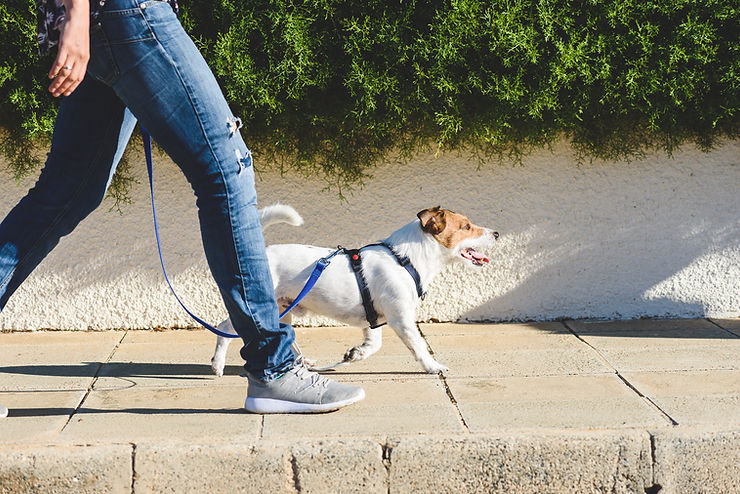The Pacific Northwest is known for its pet-friendly attitude. Designated dog parks (and even some dog-friendly restaurants) abound, offering owners several options for exercising and spending time with their beloved animals. While most dogs are well-behaved, an aggressive pet may suddenly snap and bite another person. Dog bite injuries can be serious, often requiring hospital care, stitches, or even surgery. In some cases, dog bite victims may need ongoing medical care for permanent nerve damage or other permanent conditions stemming from the incident. If you or a loved one has suffered a dog bite injury, it’s essential to recognize that you have the legal right to seek compensation from the negligent owner. Under Washington’s strict liability law, innocent dog bite victims may seek compensation for their injuries, pain and suffering, and the medical costs associated with the attack. Enlisting the guidance of a knowledgeable and experienced Seattle dog bite attorney is the best way to ensure that you recover the compensation you need to support your recovery. This post will explore how Washington State’s dog bite liability law works and what steps you can take to file a personal injury claim to recover the compensation you’re owed.
Washington State’s Dog Bite Law
Washington laws aim to protect injured parties by allowing them to recover financial damages caused by another party’s negligence. Essentially, a party that is determined to have acted recklessly or negligently may be compelled to compensate the victim for the resulting injuries they suffered. Under RCW 16.08.040, “The owner of any dog which shall bite any person while such person is in or on a public place or lawfully in or on a private place including the property of the owner of such dog, shall be liable for such damages as may be suffered by the person bitten, regardless of the former viciousness of such dog or the owner’s knowledge of such viciousness.” If a dog bites you, state law allows you to seek compensation for the medical expenses, lost wages, and pain and suffering you experienced as a result of the incident. As Washington’s dog bite law follows a strict liability statute, proof of the owner’s negligence is not required in order for the court to hold the owner liable for the victim’s injuries. If a dog bites a person in a public place or on private property (as long as the victim is not trespassing), the victim enjoys legal protection and may seek compensation from the animal’s negligent owner.
Potential Legal Defenses Dog Owners May Use
The majority of dog bite incidents result in the negligent owner being held liable for their animals. However, owners accused of negligence may use a few strategies to defend themselves from liability. For example, the owner can argue that the victim was not on the private property legally at the time of the attack; if the victim trespassed on private property without the “express or implied consent of the owner,” then the victim may not be entitled to recover compensation (RCW 16.08.050).
In other instances, a dog’s owner may argue that the victim provoked the animal to attack, resulting in injury. Under RCW 16.08.060, “Proof of provocation of the attack by the injured person shall be a complete defense to an action for damages.” In other words, if the owner can demonstrate that the victim’s actions or provocations caused the animal to attack, then the owner may be released from liability and protected from civil action.
Understanding Seattle’s Local Dog Ordinances
While state laws protect injured victims from negligent dog owners, cities like Seattle have taken additional steps to address these types of incidents. The Seattle Municipal Code establishes several guidelines to protect the public from dangerous animals. For example, dog owners may only let their dogs off-leash in designated dog parks and keep their animals up to date on all required vaccinations, including rabies. Even when owners let their dogs off leash in designated parks, they must retain voice control of the dog at all times. An owner’s failure to comply with state and municipal dog ownership laws may render them liable for injuries inflicted by their pets. Whether you sustained a dog bite injury in a public place or on someone’s private property (with their implied or explicit consent), contact a skilled and experienced Seattle personal injury lawyer right away to discuss your options.
How to Seek Compensation After a Dog Bite Injury
Being attacked by an uncontrolled and aggressive dog can be a traumatic experience. In addition to your physical injuries, you may develop symptoms of anxiety, post-traumatic stress disorder (PTSD), depression, insomnia, and other adverse health outcomes. Your injuries may prevent you from working, causing you to lose out on your income and exacerbating feelings of stress and financial anxiety. However, it’s essential to recognize that you do not have to navigate this challenging time alone. Enlisting the guidance of a seasoned Seattle dog bite attorney is the best way to ensure that you can recover the compensation you deserve. Your attorney will assess the details of your case to determine the most strategic path forward. They will help you gather evidence of the owner’s negligence and use your medical records and hospital bills to illustrate the substantial impact this incident has had on your life and well-being. Taking legal action against a negligent dog owner not only ensures that you secure the compensation you need to support your recovery—you are protecting others from suffering painful injuries from a dangerous animal. If you’re ready to recover the compensation you’re owed, reach out to Scott & Scott, PLLC, to discuss your options.
For over 60 years, the dedicated personal injury law attorneys at Scott & Scott, PLLC, have been helping Washington residents secure the compensation they need to support all aspects of their recoveries. If you need help pursuing compensation after suffering an injury at the hands of a negligent or reckless party, call our Seattle office today at (206) 622-2200 to discuss your options.
